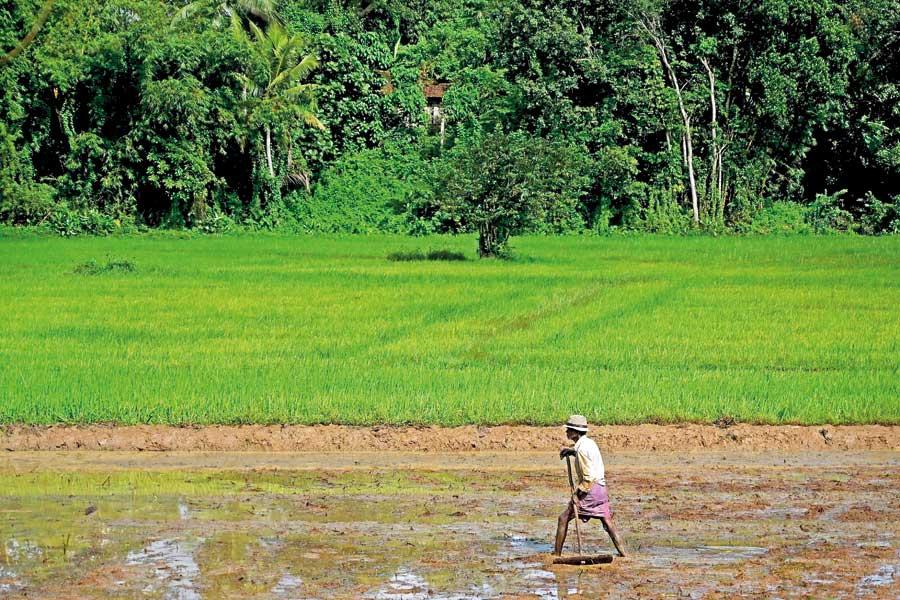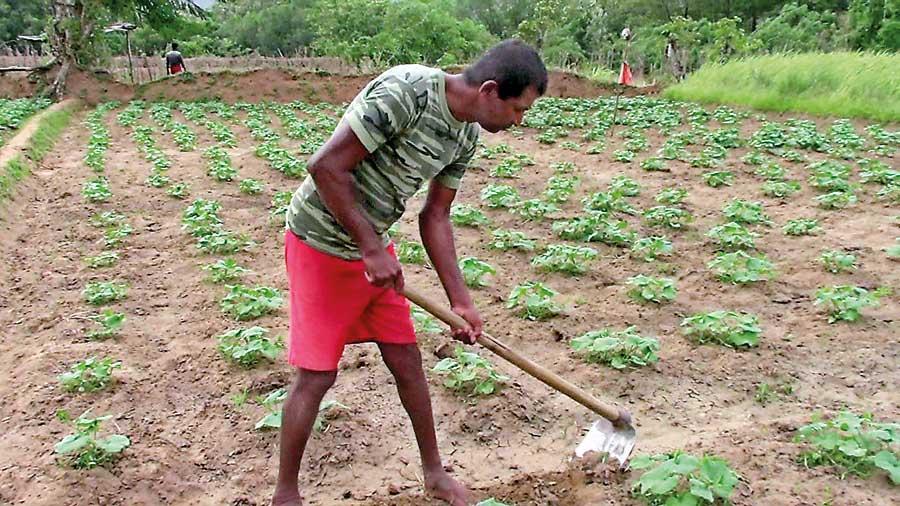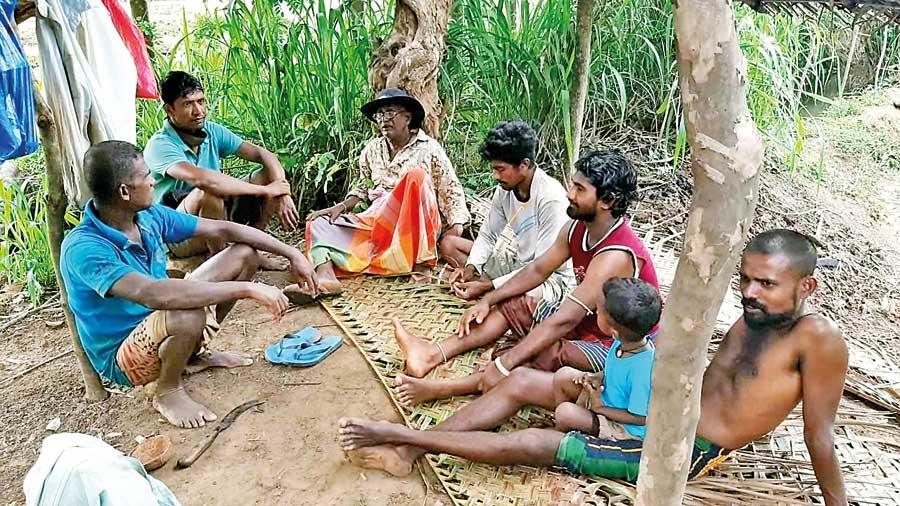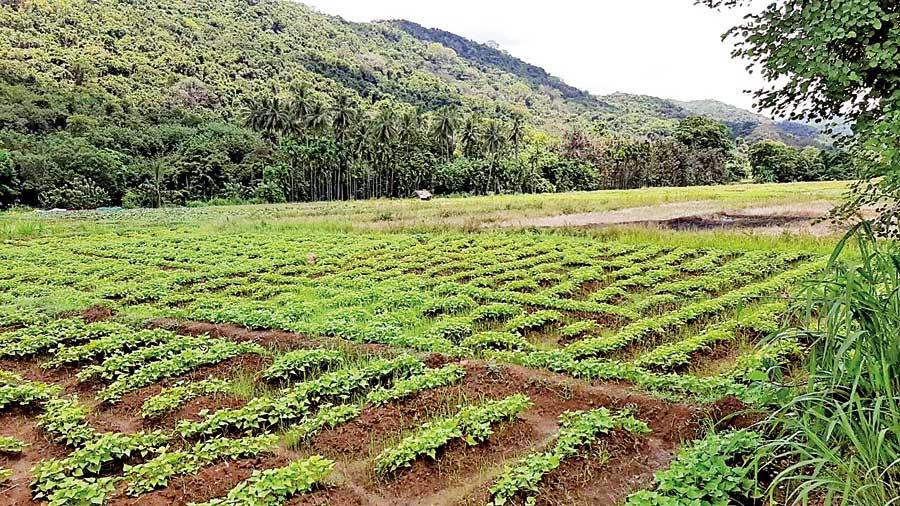A Brief Colonial History Of Ceylon(SriLanka)
Sri Lanka: One Island Two Nations
A Brief Colonial History Of Ceylon(SriLanka)
Sri Lanka: One Island Two Nations
(Full Story)
Search This Blog
Back to 500BC.
==========================
Thiranjala Weerasinghe sj.- One Island Two Nations
?????????????????????????????????????????????????Thursday, January 20, 2022
More power to Farmers

- Farmers who use complete organic fertilizer for their crops are very rare in Sri Lanka
- Before this ban, the cost of fertilizer was about Rs.3,000 and now it’s Rs.9,000
- If our food security is under threat, that becomes a national security issue
- Agriculture should be changed into a situation where the farmers have ownership and protection of what is theirs
- It’s the people living in urban areas who should be more concerned than the farmers
- There’s no quality assurance process or regulations for these fertilizers made within the country, therefore they won’t contribute much for the crop production
In order to become the first country to practice organic only agriculture, the cabinet of Sri Lanka on April 29, 2021 approved a ban on importation of chemical fertilizers and other agro chemicals. The intention of this is to ensure the health of the people and the environment of the country.
19 January 2022
The Government claims that because of chemical fertilizer usage, soil fertility has been degraded, soil acidity increased, biodiversity reduced, and above all, yield and yield quality has also not been improved. The Government also claims that chemical fertilizer usage has resulted in water pollution and accumulated poisons in food, resulting in greater incidence of cancer and chronic kidney disease in Sri Lanka.
Ever since the ban for using chemical fertilizers was imposed, the farmers did not find it favourable as it is challenging to grow crops without using chemical fertilizers.
Organic farming is unfamiliar to the Sri Lankan average farmer
“The organic fertilizer they offered wasn’t rich and workable for the crops” said Y.M.S Bandara, a farmer from the Kongahawela Agrarian Services Division, Matale. While the ban has caused the average farmer much distress, most farmers view organic agriculture as something completely exotic and difficult to adapt to, overnight. Meanwhile the prices of fertilizer have skyrocketed, adding to the farmers’ woes. “Before this ban, the cost of fertilizer was about Rs.3,000 and now it’s Rs.9,000. We can’t afford this. We need 50% of fertilizer with 50% of compost at an affordable price, in order to get the necessary harvest. About 75% of the harvest went down with this ban. We distribute crops in large scale to the country and this is a huge blow to us and the people who buy our crops. If this continues, we might not even have food for the Sinhala and Tamil new year.” he said.
Bandara also said that the government introduces new organic fertilizers to the farmers with no instructions on how to use them, which is a main reason for the rejection of organic fertilizers. “Most of these farmers don’t hold higher education qualifications. Therefore, the farmers should be guided and given proper instructions about the system on how to incorporate the organic fertilizers with their crops efficiently,” he said. “But they haven’t properly done anything of that sort and the farmers are clueless and unwilling to accept this change.”
"We need 50% of fertilizer with 50% of compost at an affordable price, in order to get the necessary harvest. About 75% of the harvest went down with this ban. - Y.M.S Bandara"
According to Chintaka Rajapakse, the government planned to go with organic fertilizer but didn’t have any effective procedure for it. “They also made the mistake of thinking that changing to organic fertilizer means changing to compost. This scared the farmers because when it comes to compost, they need to add a large amount of it to get the required harvest,” he said.
“The government, instead of spending money trying to import Chinese organic fertilizer, should use that money to give the farmers the synthetic fertilizer that they are familiar with and propose a regulated use of it so that they won’t end up misusing it again,” stated Dr. Warshi Dandeniya, Senior Lecturer and Head of the Department of Soil Science, University of Peradeniya. “Farmers who use complete organic fertilizer for their crops are very rare in Sri Lanka. And when these farmers are told to suddenly stop using chemical fertilizer, it’s fair for them to fail. Another factor is that organic fertilizer isn’t readily available in our country. This resulted in people taking advantage of this opportunity and selling low quality organic fertilizer for high prizes everywhere. People would stagnate something, bottle and sell them,” Dr. Dandeniya said.
The farmers were left in the dark
“They didn’t engage farmers and agricultural associations when making these decisions” said Rajapakse. “In order to implement this change effectively, they should engage farmers and agricultural associations when making these decisions. They should give the farmers the necessary education, technology, and a suitable relief programme to successfully implement this process. They created different kinds of committees for this but none of these involved actual farmers or leaders of agricultural associations. Almost all of them were businesspeople.”
Rajapakse alleged that farmers are left in the dark and are left to depend on whatever facility they are left with. “We request the government to create a method for the farmers to get their subsidy and propose a programme for them to change their agricultural system as quickly as possible.” he said. “We have the technology to do this without any cost and we should give farmers the freedom to do it. Now the ban is lifted but the government said they won’t give them subsidies.”
When fertilizer such as synthetic fertilizer is imported, there’s a complicated procedure to it where quality control is assured. But there’s no quality assurance process or regulations for these fertilizers made within the country, therefore they won’t contribute much for the crop production either. “The shelf life of these fertilizers is also very short,” Dr. Dandeniya explained further.
 |
"The problem here is that chemical fertlizer is regarded as a massive business, namely the agro business. And the government, instead of taking the necessary steps to solve this issue for the struggling farmers, tried to make a business out of organic fertilizer too. - Chintaka Rajapakse"
Transformation to ecological farming
Organic agriculture is based on technology and this technology constantly develops. With time, this method of farming would gradually become more complicated and expensive, explained Rajapakse. Ultimately organic farming becomes an industry into which the ordinary farmer with small scale agricultural areas can’t enter but will prove to be of advantage to the large scale companies.
“The problem here is that chemical fertlizer is regarded as a massive business, namely the agro business. And the government, instead of taking the necessary steps to solve this issue for the struggling farmers, tried to make a business out of organic fertilizer too. The Agro business front doesn’t allow agriculture to be changed,” Rajapakse opined.
“So what should be done is not changing from chemical agriculture to organic agriculture but change from chemical agriculture to ecological farming,” he explained. Which means the farmers would have their land, their livelihood, their power, their market, their production etc. Agriculture should be changed into a situation where the farmers have ownership and protection of what is theirs and a programme is needed for this transformation. More power for them in farming, production and controlling it. More power for them in making decisions and more power for them in the market. Only if this transformation in farming takes place, will we be able to solve our food, health, environmental, climate, economical and poverty problems,” Rajapakse said.
“Even though they allowed fertilizer to be brought if it’s needed for the industry, the government would still only give organic fertilizer. So what’s going to happen now is the hybrid method. We can get good results when both organic and chemical fertilizer is combined in our crops. But that decision came too late,” stated Dr. Warshi Dandeniya.

"For the crisis at hand, synthetic fertilizer is necessary. This season is already affected and if this continues to the next harvesting season too, the entire country would be in a dire situation. - Dr. Warshi Dandeniya"
Exploiting farmers is a risk to national security
“For the crisis at hand, synthetic fertilizer is necessary. This season is already affected and if this continues to the next harvesting season too, the entire country would be in a dire situation,” said Dr. Dandeniya. According to the expert, the government’s decision only resulted in businessmen making profit by selling low quality and expensive organic fertilizer. “Even with compost, people use silt and mud when making them, so this is actually like a mafia and a serious exploitation of the farmers.” According to her, while promoting organic fertilizer, we should make quality organic fertilizer locally under good regulation and make it available for the farmers. It’s important to put our farmers into the organic matter soil. We can also guide and bring awareness to the farmers on how to make their own quality fertilizer on a small scale and give them the know-how to maintain it. But while promoting organic fertilizer, we have to add synthetic fertilizer too. Otherwise we won’t be able to get the required crops and it won’t be sustainable to our country.
“Our priority is maintaining our production level. If our food security is under threat, that becomes a national security issue, which is what we are experiencing now.” Thus it’s important to enter the hybrid system of organic and synthetic fertilizer. We already have these policies in our agriculture ministry policies, but they have to make strategies and implement them.
Rajapakse also mentioned that most of the farmers now rent their lands instead of farming. If this failure in harvest keeps happening for a few more seasons, people will stop farming and sell all these lands away. The government on the other hand thinks that people don’t have to do any farming since they can import food for us but already about 60% of food products in Sri Lanka are imported. Dr. Dandeniya pointed out that this season is already affected and the fields look like meadows with weeds and seedlings. “It’s the people living in urban areas who should be more concerned than the farmers,” she said. “Because the farmers won’t be selling their crops they are left with and would keep the harvest for their own consumption. They will at least have their food. It’s the people living in the urban areas who will have to face this problem primarily and wait until their food is imported.”

